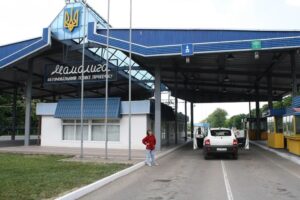
On Wednesday, the Moldovan government approved a draft law “On the admission, stay, and supervision of foreigners” developed by the Ministry of Internal Affairs. According to the press service of the Cabinet of Ministers, the document includes new concepts adapted to the legal framework of the European Union. According to the draft law, a residence card will now become a single document confirming the identity and legal status of foreigners.
To strengthen the admission process and ensure effective management of migration flows, foreigners will be required to justify the purpose of their stay in the republic by providing relevant documents (contracts, certificates, invitations, etc.).
In addition, mandatory confirmation of financial solvency during the period of stay in the country will be introduced.
“The criteria and level of means of subsistence will be established by subsequent regulations depending on the purpose of the stay,” the document notes.
A “flexible regime” will apply to short-term stays (up to 90 days). It is expected that the procedures for submitting applications, approvals, notifications, and reporting will be digitized.
The law is intended to stimulate “competitive advantages for sectors of the economy with labor shortages” and “support companies operating in sectors where the local workforce is insufficient by hiring third-country nationals for various purposes.” At the same time, however, there are plans to reduce illegal employment.
At the end of 2025, more than 21,500 foreigners and stateless persons from more than 130 countries were registered in Moldova. Of these, more than 5,600 were eligible for permanent residence, and about 16,000 were eligible for temporary residence.
http://relocation.com.ua/moldova-to-tighten-control-over-migrants-on-its-territory/

The State Border Service has announced that traffic will be restricted from 5:00 a.m. on February 18 at border crossing points located on the border with Moldova due to difficult weather conditions.
“Attention international carriers! Traffic through border crossing points located on the border with Moldova will be restricted,” the State Border Service said in a statement on its Telegram channel on Tuesday.
It is reported that the temporary restriction will be imposed on the M-15 Odessa-Reni (to Bucharest) public highway, km 11+920 – km 308+000, from 5:00 a.m. on February 18, 2026. The restriction applies to trucks and passenger vehicles (buses, minibuses).
The reason for the traffic restrictions is difficult weather conditions, which create an increased danger for all road users, as well as to ensure the timely elimination of the consequences of bad weather and prevent accidents.
In this regard, traffic to and from the checkpoints “Palanka-Mayaki-Udobnoe,” “Starokozachye,” “Serpnevoe,” “Maloyaroslavets,” “Lesnoye,” “Reni,” “Dolinskoe,” “Orlovka,” “Vinogradovka,” “Tabaki,” “Novye Trojany” for the specified category of vehicles will be suspended. This has been communicated to our Moldovan colleagues.

The clearance of vehicles and goods at the Ukraine–Moldova border is temporarily not being carried out due to a failure of the central databases of the customs authorities of the Republic of Moldova, Ukraine’s State Customs Service has reported.
“Please take this information into account when planning to cross the border! The resumption of clearance operations will be announced additionally,” the message posted on the Telegram channel on Saturday said.
As reported, according to First Vice Prime Minister and Minister of Energy of Ukraine Denys Shmyhal, on January 31 at 10:42 a technological incident occurred, involving the simultaneous disconnection of the 400 kV line between the power systems of Romania and Moldova and the 750 kV line between the western and central parts of Ukraine.

Romanian President Nicușor Dan stated that the scenario of unification between Romania and the Republic of Moldova can only be discussed if the majority of Moldovan citizens want it, noting that “we are not there yet.”
According to Romanian media reports, Dan made the statement in response to questions from journalists upon his arrival at an informal meeting of the European Council.
Moldovan President Maia Sandu, in turn, during her first major press conference in 2026, called a possible union with Romania one of the options for guaranteeing peace and belonging “to the free world,” while emphasizing the priority of the course towards EU accession and pointing out the current lack of sustained public support for the idea of unification.

Ukraine, Romania, and Moldova have agreed to establish a trilateral chamber of commerce and industry, according to Mykola Kutsak, chairman of the Chernivtsi Regional Council.
“In practice, this could mean closer cooperation between our countries and financial assistance to Moldova and Ukraine on their path to the EU. In particular, from our position, we will be talking about Ukraine’s recovery from the consequences of the hostilities,” Kutsak explained.
According to him, representatives of the three countries, the European Parliament, and the European Union are involved in the initiative. A working group has been set up to prepare for the launch of the future platform, which will coordinate further steps to form the structure and mechanisms of the chamber.

The Romanian government has announced the acquisition of 100% of the shares of Danube Logistics, the operator of the Giurgiulești International Free Port in the Republic of Moldova, from the European Bank for Reconstruction and Development (EBRD).
The Moldovan Ministry of Economy has confirmed the legality of the transaction, emphasizing that it concerns only the private port operator and does not affect state-owned land. Final approval of the price is expected on February 11, 2026.
The Romanian side plans to invest more than €24 million in the modernization and development of Giurgiulești’s infrastructure: the goal is to integrate the port into Romania’s logistics network, expand its capacity, and strengthen the region’s role in the Danube and Black Sea transport corridors.
The port of Giurgiulești is located on a short section of Moldova’s access to the Danube, near the border with Romania and Ukraine, and is Moldova’s only port with access to sea and river routes.
The EBRD has previously noted the port’s strategic importance for Moldova’s foreign trade (over 70% of water import and export flows) and its potential as a hub that could be in demand for regional logistics, including future projects to rebuild Ukraine.